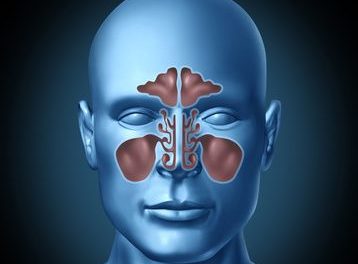There are many kinds of sleep medication. Americans now spend around $5 billion each year on sleep medications. According to the October 23, 2007 issue of the New York Times, also reporting NIH figures, newer sleeping pills like Ambien, Lunesta, and Sonata reduced the average time to go to sleep by just under 13 minutes compared with fake pills. The sleeping pill Rozerem gets you to sleep 7 to 16 minutes faster than a placebo and increases total sleep time 11 to 19 minutes for the low, low price of $3.50 per pill.
Benzodiazepines include drugs like diazepam (Valium), clorazepate (Tranxene), oxazepam (Serax), lorazepam (Ativan), alprazolam (Xanax), clonazepam (Klonopin), triazolam (Halcion) and others. Benzodiazepines act on the neurotransmitter, gamma-aminobutyric acid (GABA). GABA is an inhibitory neurotransmitter. Some researchers believe that when GABA is in short supply, there is an overstimulation of the nervous system that produces anxiety. GABA is formed from alpha keto glutaric acid, which is a byproduct from the Krebs cycle. This is the reason that many people with anxiety respond to supplementation with B vitamins and magnesium; they are cofactors for the reactions in the Krebs cycle.
Side effects of benzodiazepines include drowsiness, depression, disorientation, headache, sleep disturbance, confusion, irritability, aggression, and memory impairment. All types of benzodiazepines are habit-forming and stopping suddenly can cause withdrawal symptoms. BENZODIAZEPINES ARE ADDICTIVE. Common symptoms of benzodiazepine withdrawal include anxiety, trouble sleeping, restlessness, muscle tension, and irritability. Less commonly, patients may also experience nausea, malaise, blurred vision, sweating, nightmares, depression, muscle coordination problems, tremors, and muscle twitching or spasms. In rare cases, hallucinations, delusions, seizures, and ringing in the ears may also occur.
Doxepine (Silenor): This is classified as a tricyclic antidepressant. It blocks the reuptake of serotonin and norepinephrine. This drug can cause suicidal thinking and behavior in young people. Other side effects include drowsiness, dizziness, fatigue, dry mouth, blurred vision, tinnitus, nausea, vomiting, constipation, weight gain, decreased sex drive and trouble urinating.
Eszopiclone (Lunesta): This drug belongs to a class of drugs known as sedative-hypnotics. They slow down the body’s functions. Often these drugs are referred to as tranquilizers and sleeping pills or sometimes just as sedatives. It is meant for short term use. Side effects include: drowsiness (daytime), dizziness, feeling hungover, memory and concentration problems, anxiety, depression, nervousness, headache, nausea, stomach pain, loss of appetite, constipation, dry mouth, unpleasant taste in the mouth and skin rash. More serious side effects can include aggression, agitation, behavior change or hallucinations.
Ramelteon (Rozerem): This medication works differently than the others. It is a prescription melatonin receptor agonist—it enhances the effect of melatonin. It works by targeting the sleep-wake cycle, not by depressing the central nervous system. It is prescribed for people who have trouble falling asleep. Side effects include dizziness, fatigue, nausea or worsening sleep problems.
Suvorexant (Belsomra): This medication is in a class called orexin receptor antagonists. Orexin is a hormone that is produced by the hypothalamus and functions to regulate appetite and sleep. It is habit-forming. Side effects include weakness in the legs, daytime drowsiness, memory loss, behavior changes, anxiety, confusion, agitation, hallucinations, depression, and thoughts of suicide. People taking this drug have sleepwalked, driven while sleeping, and eaten food while sleeping.
Zaleplon (Sonata): This is a sedative-hypnotic that is only used for insomnia. It is habit-forming and long-term use can lead to withdrawal reactions. Side effects include dizziness, lack of coordination, drowsiness, headache, vision problems, distorted sense of smell, numbness, sensitivity to noise, rash, itching hives, swelling of the face (tongue, throat, lips), hoarseness, difficulty breathing or swallowing, and burning or tingling in the hands and feet.
Zolpidem (Ambien): This is also a hypnotic. Side effects include dizziness, lack of coordination, drowsiness, headache, depression, anxiety, aggression, agitation, confusion, unusual thoughts, hallucinations, memory problems, changes in personality, risk-taking behavior, decreased inhibitions, no fear of danger, or thoughts of suicide, difficulty breathing or swallowing, and burning or tingling in the hands and feet.
Over the counter sleep medication: Most of these are antihistamines.
There is much that can be done for insomnia naturally. People that wake up in the middle of the night, unable to fall back to sleep, often respond to adrenal or blood sugar support. One novel therapy that frequently works is to give the patient a high dose of thiamin for two days and then maintaining a reduced dose. B vitamins, in general, are beneficial to patients with insomnia. Often people with problems sleeping need magnesium.






